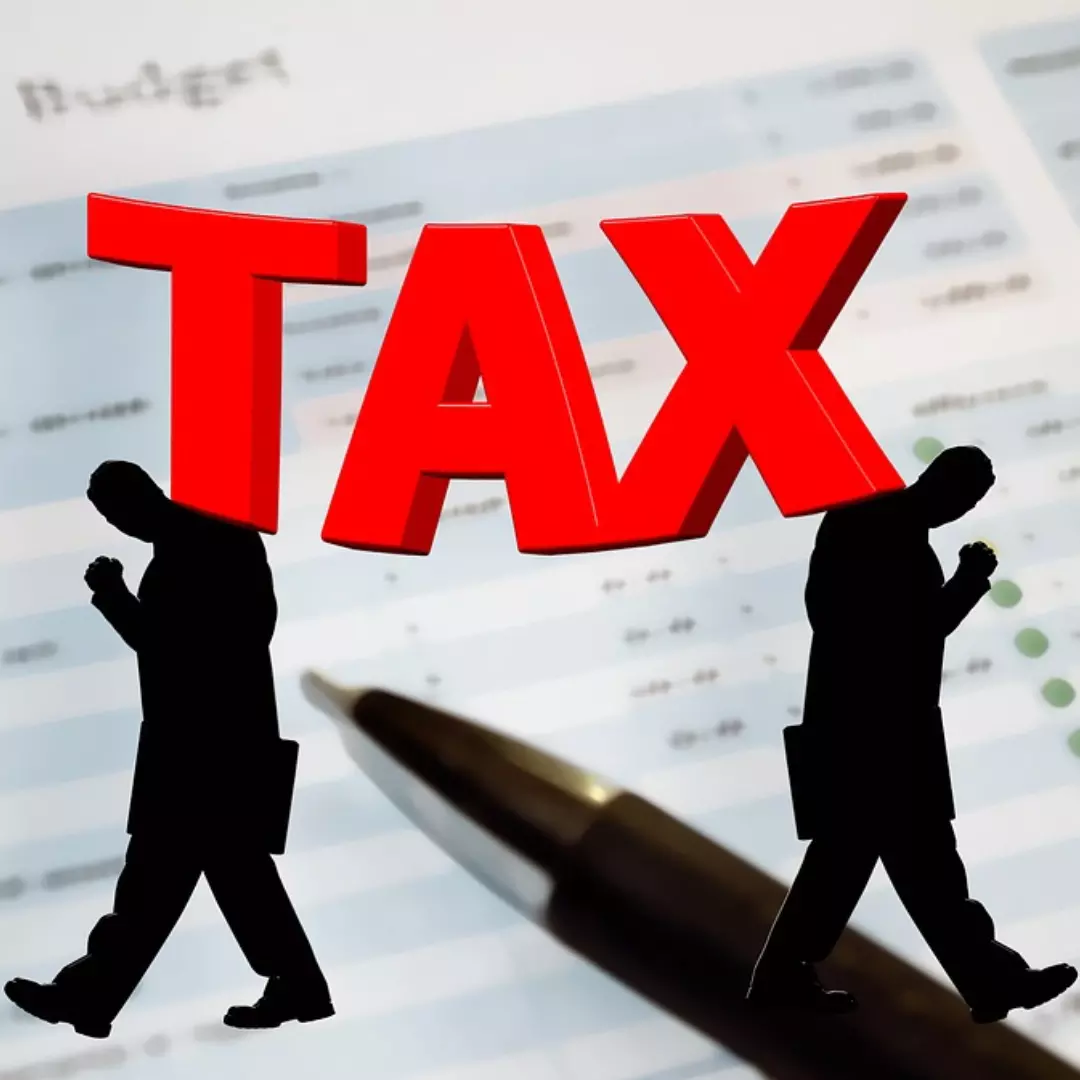Income tax is a tax levied by the Government of India on the income of every person. The Income Tax Act of 1961 covers legal provisions regarding the collection of income tax. Here are some important terms you need to keep in mind to understand income tax, such as:
Persons filing Tax: It is mandatory for every person to pay income tax. Income tax law defines the term ‘person’ to include individuals, Hindu Undivided Family etc. Read more here.
Calculating Taxable Income: The Income Tax Department taxes you based on your income from categories such as income from salaries etc. The total income calculated from these heads is called the gross total income. It is from this amount that deductions are made. Read more here.
Entities and Income exempt from Tax: Certain entities as well as certain kinds of income are exempt from tax. In other words, income tax will not be charged to such entities and incomes. Some examples include agricultural income, income for scholarships for higher education etc. Read more here.
Deductions with respect to tax: A deduction is an expense that is subtracted from an individual’s gross total income to reduce the amount which is going to be taxed. Deductions can be less than, more than, or equal to the amount of income. If the amount deductible is more than the amount of income, then the resulting amount will be taken as a loss while calculating taxes. Some of the deductions for individuals include income from a loan taken for house property, income from loans taken for higher education, etc. Read more here.
Tax Collection: Taxes are collected by the Government through:
Banks in India: Taxpayers can voluntarily pay income tax by going to designated banks. For example, taxpayers can pay advance tax and self-assessment tax in authorized bank branches such as ICICI Bank, HDFC Bank, Syndicate Bank, Allahabad Bank, State Bank of India, etc.
Taxes deducted at source [TDS]: When tax is collected from the very source of income of the person receiving income, it is known as ‘taxes deducted at source’ or TDS. This is the tax payable by a seller, which he collects from the buyer at the time of sale. For example, in a parking area of a shopping mall, along with the parking fee, the mall will charge a tax amount for a parking lot. Some other instances where sellers collect TDS are for liquor while selling a motor vehicle, jewelry, etc.
Please note that It is mandatory for a taxpayer to have a PAN Card as well as an Aadhar Card while filing taxes.
Who must file Income Tax?
It is mandatory for every person to pay Income-tax. Income tax law defines the term ‘person’ to include:
An Individual: For example, a salaried employee.
Hindu Undivided Families (HUF): For example, a HUF including the joint family of Mr. Rakesh, Mrs. Rakesh, and their sons must pay tax as a separate entity.
An association of persons or body of individuals: For example, a housing cooperative society.
Firms: For example, a firm called TaxMann & Co-owned by Mr. Rakesh and Mrs. Rakesh.
Limited Liability Partnerships (LLPs): For example, ABC LLP. In an LLP, each partner is not responsible or liable for another partner’s misconduct or negligence.
Companies: For example, ABC Ltd., XYZ Ltd.
Local authorities and any artificial juridical person not covered under any of the above: For example, Universities and Institutions, Municipal Corporations, etc.
Thus, from the definition of the term ‘person’, it can be observed that, apart from a natural person, i.e., an individual, other artificial entities like a company, HUF, etc. are also liable to pay Income-tax. All associations of persons, bodies of individuals, local authorities, and artificial juridical persons will have to pay income tax even if they were formed with or without the objective of earning a profit, or income. However, certain institutions or entities in India do not have to pay taxes under the law. Read here to find out more about exemptions.
Ways of filing an Income Tax Return
You can file an Income Tax Return Form with the Income Tax Department in any of the following ways:
Submitting the return in a paper form (offline) to the income tax office
Submitting the return electronically with a digital signature
Electronically transmitting the ITR data with an electronic verification code
Electronically transmitting the ITR data, and later submitting the verification of the return
Option 1: Manual Filing (Offline)
For filing returns manually, you need to go to the Income Tax Department’s office to physically file returns. You can locate your nearest tax office here. Fill out the form completely and provide all the necessary details correctly. ITR forms don’t have attachments, so you don’t need to attach any documents (like proof of investment, TDS certificates, etc.) along with the return on income. However, these documents should be kept safely and should be produced before the tax authorities when demanded in situations like an assessment, inquiry, etc.
Option 2: Filing Electronically (Online)
Electronically filing your tax returns through the Internet is an easier process than physically filing returns because you do not need to take an actual printout of the documents. Also, it is a simpler process and can be done for free online through the income tax website.
Please note that in the offline mode, you will need to download the ITR form from the income tax website, fill it out offline and then submit it on the website. In the online mode (applicable only for ITR forms 1 and 4), you can fill in the form directly online.
Time Limit for filing Your Income Tax Return
For the financial year of 2019-20, the Income Tax Return (ITR) general filing deadline is November 30, 2020. The deadline to file belated and/or revised tax returns for the previous financial year of 2018-19 is July 31, 2020.
You can find other important due dates and income tax timelines for the year 2020 in the Government of India’s official Tax Calendar.
In your Income Tax Return (ITR) form, you will have to select a category to file the form, depending on:
The date of filing the ITR form – You will be filing the form on/before the due date, or after due date
The type of income tax return – Generally, you will be filing an original ITR form applicable to that assessment year. After filing the original form, in case you later have to correct or modify any details in the form, then, you can file another revised or modified return in reference to the original.
The different timelines while filing income tax returns are below:
On or before the due date
For example, if the filing deadline is 30th November and you file your income tax return on 15th November, then you would have filed the ITR before the due date.
Belated return (after the due date)
If you have not submitted your income tax return within the time allowed to you, then you may submit the return for any financial year at any time before the end of the relevant assessment year, or before the completion of the assessment (whichever is earlier).
For example, take a situation where you had to submit your income tax return for the financial year 2019-20 by 30th June 2020, but you didn’t do so. In this case, your assessment year will be 2020-21. If the assessment year is ending on 31st March 2021, you will have to submit your return by this date (end of assessment year). If the income tax assessment happens before the end of the assessment year, then you will have to submit your delayed return before the assessment.
What is a revised return?
After submitting a return/belated return, if you discover any omission or any wrong statement, you can submit a revised return at any time before the end of the relevant assessment year or before the completion of the assessment, whichever is earlier.
For example, if you submitted your income tax return for the financial year 2019-20 by the deadline of 30th June 2020, your assessment year will be 2020-21. After submitting the return, if you realise that you have given some wrong information in the form, then you have to submit another revised form. This should have the correct information. If the assessment year is ending on 31st March 2021, you will have to submit your revised return by this date (end of assessment year). If the income tax assessment happens before the end of the assessment year, then you will have to submit your revised return before the assessment.
What is a modified return?
This applies in a situation where you have entered into an agreement after submitting your income tax return. If the agreement is applicable to or affects the financial year for which you have filed income tax, you will have to submit a modified return in accordance with the agreement.
For example, if you submitted your income tax return for the financial year 2019-20 by the deadline of 30th June 2020, your assessment year will be 2020-21. After submitting the return, if you enter into an agreement that impacts your income tax returns for the financial year, then you have to submit a modified return including the details of the agreement.
The modified return should be filed within three months from the end of the month in which you entered the agreement. For instance, if you entered into the agreement in July, you have to submit the modified return by the end of October (3 months).
When do income tax authorities permit delays?
The Central Board of Direct Taxes (CBDT) may authorise any income-tax authority to allow an application from you. The application may be for income tax exemption, deduction, refund, relief, etc. Your application may be allowed/accepted even after the expiry period. You can take the help of a Chartered Accountant or Lawyer to do this.
Nyaaya’s 4-Step Process: How to File Your Tax Returns?
Filing tax returns can be a detailed and long-drawn process. Check out Nyaaya’s 4 step process for filing your tax returns. For additional help, you may contact a Chartered Accountant or a lawyer to additionally help you.
Step 1: Initially, for filing an Income Tax Return, you need to find out what category of taxpayer you are. This involves calculating your taxable income based on standard tax rates. There may also be certain tax deductions that you can avail to reduce your tax liability.
Step 2: When it comes to actually filing tax returns, you must most importantly ensure that you submit your returns within the specified dates/timeline by selecting the correct ITR Form that is applicable to you.
Step 3: There are various ways in which your ITR can be filed i.e., physically or electronically, and each filing option comes with a different procedure. Even within electronic filing, you have offline and online options. Irrespective of how you file your ITR, you will have to verify it upon submission. Sometimes, you might have to correct certain details in your ITR Form or claim a refund if you have paid excess tax.
Step 4: Accurate information and filing on time is essential while filing taxes. If you violate any laws related to income tax, you can be punished. Hence, if you are doubtful about any aspect of filing returns, it is advisable to seek help by contacting the income tax authorities.
Also Read: Here’s Why Employees Of This State Power Department Wear Helmets To Work
https://thelogicalindian.com/h-upload/2023/02/28/500x300_230153-web-1-11.webp
Law
2023-02-28 11:37:11.0
Income Tax Laws: What All Do You Need To Know?












